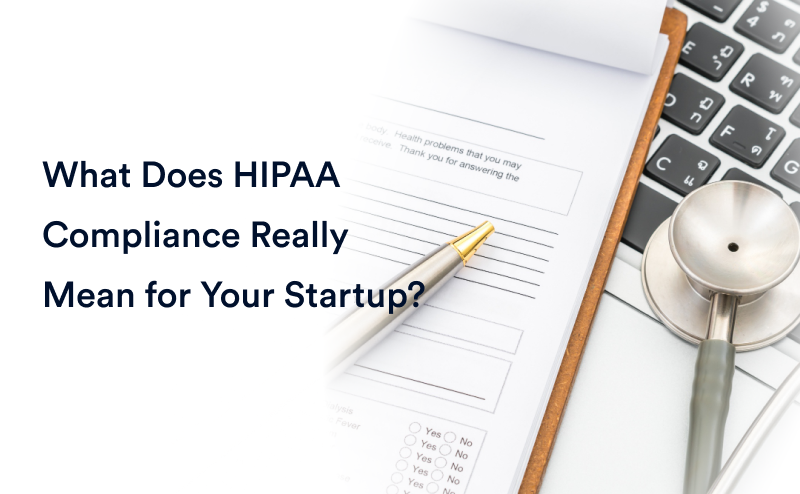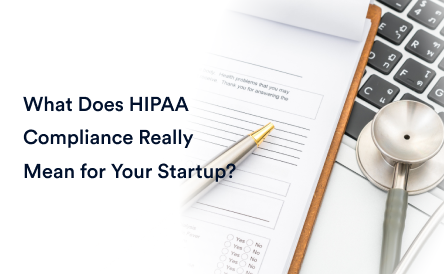
So, you’ve launched a startup in the healthcare space? Congratulations! But before you dive deep into innovation, there’s a crucial hurdle to cross — HIPAA compliance.
HIPAA (Health Insurance Portability and Accountability Act) ensures the protection of sensitive health information, and non-compliance can cost your startup heavily — both in penalties and lost trust.
In this guide, we’ll break down everything you need to know about HIPAA compliance for startups in an engaging, easy-to-digest manner.
1. Who Needs to Be HIPAA Compliant?
Let’s start with the basics. Does HIPAA even apply to your startup?
If your startup handles Protected Health Information (PHI), then the answer is YES. PHI includes medical records, billing details, or any identifiable health information.
You fall under one of these categories:
- Covered Entities (CEs): Healthcare providers, health plans, and healthcare clearinghouses.
- Business Associates (BAs): Any entity handling PHI on behalf of a CE (think cloud storage, billing services, etc.).
💡 Quick Check: If your startup builds apps, platforms, or services dealing with PHI, compliance isn’t optional — it’s mandatory.
2. The Key Pillars of HIPAA Compliance
HIPAA compliance rests on three major pillars:
a) The Privacy Rule
This rule dictates how PHI should be handled and who can access it. Patients have rights over their data, and you must ensure it remains protected.
b) The Security Rule
This focuses on safeguarding PHI digitally. Expect regulations around encryption, access control, and audit trails.
c) The Breach Notification Rule
Data breaches? You’re required to notify affected individuals, the Department of Health & Human Services (HHS), and sometimes even the media!
💡 Pro Tip: Regularly update your privacy policies and conduct risk assessments to ensure compliance.
3. Steps to Achieve HIPAA Compliance
Now that you know the basics, let’s get to the real action — what steps should your startup take?
Step 1: Conduct a Risk Assessment
Identify potential vulnerabilities in how PHI is collected, stored, and shared.
Step 2: Implement Security Measures
- Encrypt PHI (both in transit and at rest)
- Restrict access to authorized personnel
- Conduct employee HIPAA training
Step 3: Sign Business Associate Agreements (BAAs)
If your startup works with third-party vendors who access PHI (e.g., cloud providers), ensure they sign a Business Associate Agreement (BAA) to confirm their compliance.
Step 4: Develop Policies & Procedures
Create internal HIPAA policies for handling PHI and dealing with security incidents.
Step 5: Regular HIPAA Audits & Compliance Checks
Don’t treat HIPAA as a one-time checklist — it’s an ongoing process. Conduct audits and update security measures regularly.
💡 Did you know? HIPAA violations can cost up to $1.5 million per year for repeated offenses. Stay proactive!
4. Common Mistakes Startups Make (And How to Avoid Them)
Assuming Small Startups Are Exempt Even if you’re a two-person team, handling PHI means you must comply.
Skipping Security Training Your employees need to understand HIPAA. A single mistake (like emailing PHI insecurely) can lead to massive penalties.
Using Non-Compliant Cloud Services Not all cloud storage providers are HIPAA-compliant. Ensure you choose one that offers BAAs.
Delaying HIPAA Compliance Thinking you’ll “figure it out later” can lead to costly legal trouble. Prioritize compliance from Day 1.
5. How to Make HIPAA Compliance Work for You
Think of HIPAA compliance as an investment rather than a burden. Here’s why:
✅ Boosts Customer Trust: Patients and partners prefer working with companies that protect their data.
✅ Prepares You for Growth: Compliance sets a strong foundation, making future expansion easier.
✅ Reduces Legal Risks: Avoid hefty fines and lawsuits by staying compliant.
💡 Fun Fact: Many healthcare startups use HIPAA compliance as a competitive advantage when pitching to investors.
Final Thoughts: HIPAA Compliance as a Growth Strategy
HIPAA compliance isn’t just about avoiding penalties — it’s about building a secure, trustworthy, and future-proof startup.
By taking the right steps early on, you’ll not only protect sensitive health data but also position your business for long-term success.
Got questions about HIPAA compliance? Drop them in the comments! Need help implementing security measures? Let’s discuss best practices.
Your startup’s success depends on data security — start your HIPAA compliance journey today!
Compliance Starts with Confidence.
Don’t let HIPAA feel like a hurdle — turn it into your startup’s competitive edge. Whether you’re storing patient data, building health apps, or scaling your services, HIPAA compliance is non-negotiable.
At Finstein, we help healthcare startups:
- 🔐 Conduct risk assessments
- 🛠️ Build secure, scalable compliance frameworks
- 🤝 Sign and manage Business Associate Agreements (BAAs)
- ✅ Stay investor-ready with audit-proof practices
📞 Book your free HIPAA consultation today at Finstein cyber.
#HIPAACompliance #StartupSecurity #HealthTech #DigitalHealth #PHIProtection #HIPAAGuide #HealthcareCompliance #SecurityForStartups #HealthDataSecurity #FinsteinCompliance #HIPAAforStartups #HealthcareInnovation







